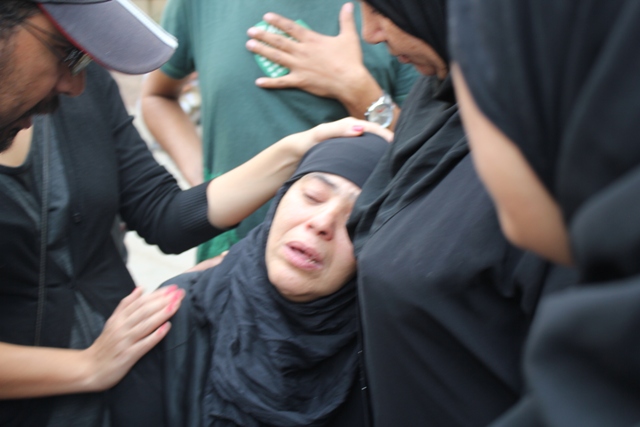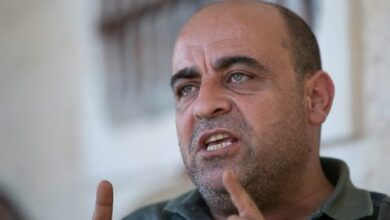
Ineam Atta, whose son Essam was incarcerated in the infamous Tora prison and died in a hospital last week, gave her testimony to the public prosecution Tuesday, saying that her son was tortured.
Her son and his friends in prison told her he was being tortured by police officer Nour Hassan, who inserted a water hose into his anus, forced him to drink large quantities of liquid detergent and beat him, she said.
Since Atta’s death on 27 October, his family has been saying that he died from the torture. The exact circumstances of his death, however, remain unclear. Police said that an autopsy showed that he was not tortured but killed by poison. Police also claim that a rolled tube containing drugs was found in his body.
Ineam refutes claims that Atta had complained of eating bad food, which prompted him to visit the prison’s hospital doctor.
An Qasr al-Aini Hospital report says that the 23-year-old died of poisoning, but does not specify the cause. Doctors from the unit say they found traces of the pain reliever tramadol and hashish in Atta’s body.
During her testimony, Ineam Atta recounted the sequence of events during her visit to Tora high security prison where her son was being held after a military tribunal convicted him of illegally squatting in an apartment.
She went to see him on 25 October, after three months of not having visited because money was tight.
“Essam’s face was swollen when I saw him, and he said that was because he was being beaten by Nour,” she said in her testimony Tuesday.
She brought her son food and a SIM card so that he could keep in touch. He gave this SIM card to his friend, a fellow prisoner, who had more experience in smuggling such items, she said. But another prisoner, with whom Essam Atta was in a dispute over LE5, saw the exchange and complained to officers and accused Essam Atta of swallowing marijuana. Nour then said Ineam Atta's visit had to end.
As her son was taken away, Atta said she heard him screaming “Follow me, Mother.”
Later that day, she called her son on the number that he usually called home from, and another prisoner picked up. He said Essam had a hose inserted into his anus and was forced to drink two liters of detergent.
At 11 pm, Atta spoke with his family and asked his father to submit a complaint to the attorney general because of the torture he was being subjected to, but his brother and father said it wasn’t a good idea, as it might make the situation worse. When he spoke to them the following evening on Wednesday, he once again asked them to submit a complaint and also spoke with his two sisters to check on them.
“After this phone conversation, there was no contact until I found out he was dead,” Ineam Atta said.
On Thursday at 4 pm, the family's neighbors Zeinab and Aya called, saying that Essam Atta was sick in the hospital, but they did not know which one. They found out through his sister, Yasmine, who was called by a prison inmate, according to Ineam Atta's testimony.
Eventually, the family found out he was at Qasr al-Aini Hospital, but when Ineam Atta arrived, he was already in the morgue.
“His face was swollen, his nose was blue and his mouth had foam mixed with blood coming out and his whole body was swollen,” she said.
The final results of the autopsy conducted by Dr. Souad Abdel Ghaffar on Atta’s body on 30 October have yet to be released. Lawyers working on the case have filed a request for a new autopsy to be conducted by a committee of three forensics doctors and one independent doctor.
Foreign objects were found in Atta’s intestines during the autopsy, but it is not clear how they entered his body. These objects include a rolled wrap that contained liquid capsule pills.
Dr. Aida Saif al-Dawla, a human rights activist and member of Al-Nadeem Center for the Rehabilitation of Victims of Violence, has been highly critical of the way the autopsy was conducted. She says the process lacked professionalism and oversight by an independent witness. She also said that if Essam did go to see a hospital doctor, it is not known what the doctor said to him, or prescribed.
Saif al-Dawla was not allowed to enter the autopsy room, but was outside during the examination.
Dr. Ahmed Sayam, a member of the pro-revolution Tahrir Doctors Society, witnessed the majority of the procedure and said on Monday that he could not see any visible signs of torture, but that the cause of death is still unclear.




